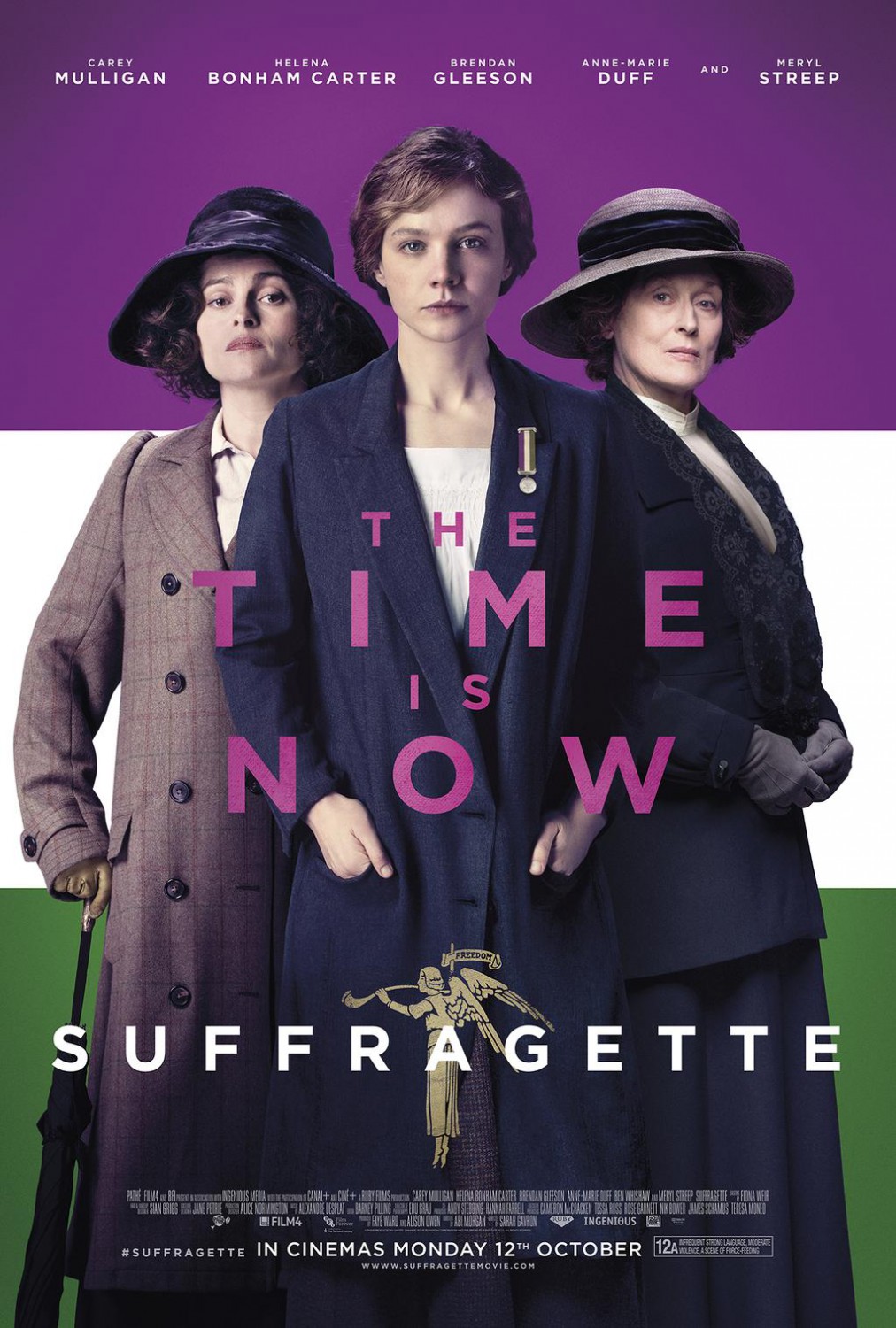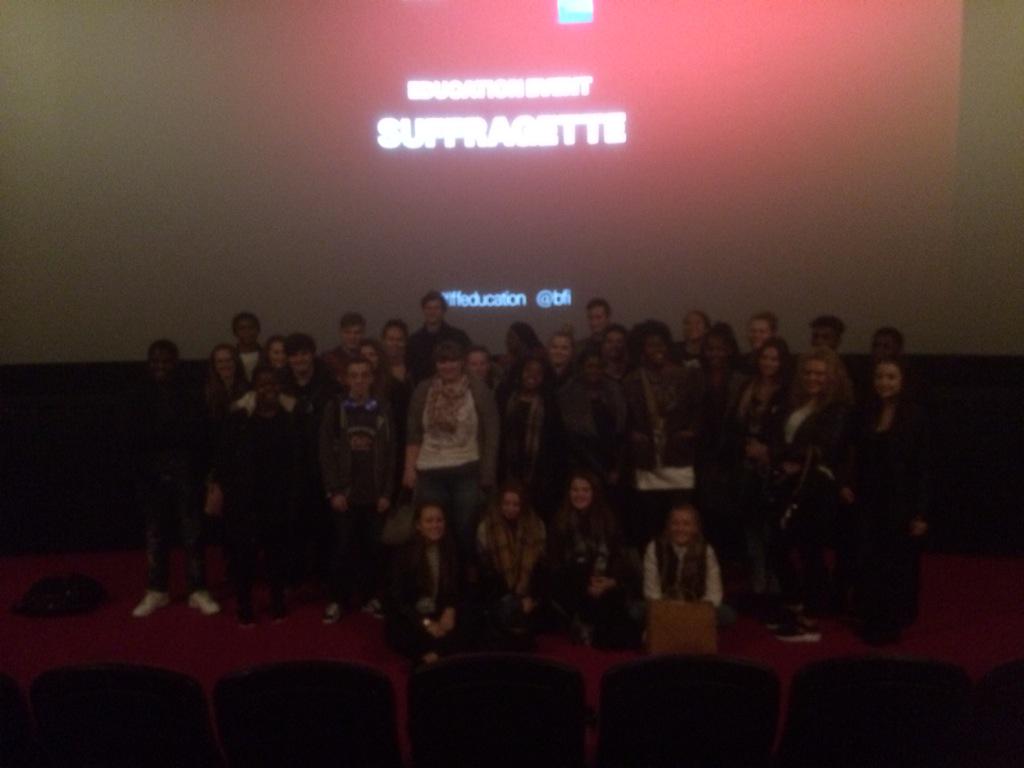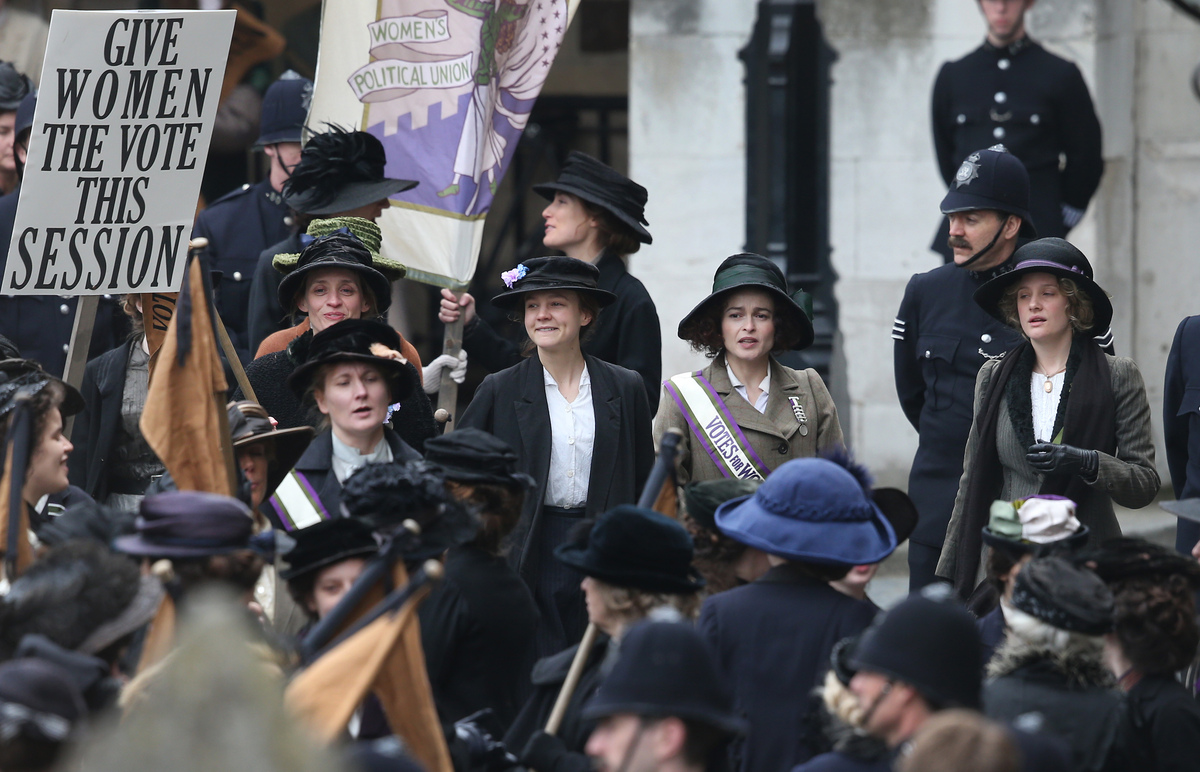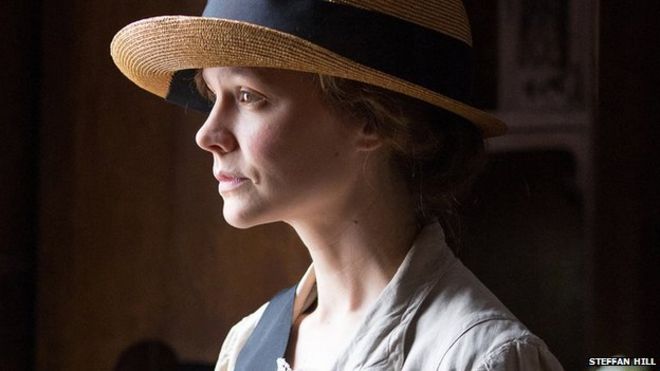


On Friday 9th October,
I went with my film class to watch a screening of Suffragette at the BFI Film
Festival in London. I really enjoyed the experience because the producer gave a
short question and answer at the end of the film which gave me an insight into
the production of Suffragette and the film-makers intentions behind it. At
multiplex cinemas such as Vue in Croydon, there are no opportunities to meet
those involved in making the film and the Arthouse experience was therefore
much more inclusive and there was a completely different atmosphere regarding
the room’s layout and also its audience who were clearly more serious about
film, highlighted by the round of applause at the end which does not often
happen in multiplex cinemas.
Suffragette was directed by Sarah
Gavron, written by Abi Morgan and produced in 2015 by Alison Owen and Faye Ward
with Ruby Films, Pathe, Film4 and Ingenious Media. Sarah Gavron is not a widely
known director and she has previously directed only one feature film: Brick
Lane (2007) which follows the life of a young, Bangladeshi woman. It made
$1,095,398 in the box office and received a rating of 6.7 from IMDb. Gavron has
also directed two short films: Losing Touch (2000) and The Girl in the Lay-By
(2000), one documentary: Village at the End of the World (2012) and one TV
Movie: This Little Life (2003). Due to Suffragette still being in its exhibition
stage, the box office is currently unknown but I believe it will top Brick Lane
purely because it has been hyped in its sales and marketing stages and I have
seen various articles on it in mainstream newspapers such as The Times and also
advertisements on buses. Additionally, there is also controversy surrounding it
which has been on the news: during its premiere, feminists protested on the red
carpet and they were chanting “dead women can’t vote” which is likely to draw
more attention to the film, therefore attracting a wider audience and grossing
a larger amount of money.

The music was by Alexandre
Desplat, the director of photography was Eduard Grau, the editor was Barney
Pilling and production design was by Alice Normington. Suffragette stars Carey Mulligan
(Maud Watts), Helena Bonham Carter (Edith Ellyn), Anne-Marie Duff (Violet
Miller), Ben Whishaw (Sony Watts), Natalie Press (Emily Wilding Davison), Adam
Michael Dodd (George Watts) and Meryl Streep (Emmeline Pankhurst). As the title
quite rightly suggests, Suffragette is about the feminist movement and how the
women who fought peacefully for the right of their vote achieved nothing so had
to resort to violence and suffering just to get their voices heard. The
narrative revolves around the story of our main protagonist, Maud Watts and how
her experience in the movement affected her family and personal life. (Spoiler
alert) However, I did not personally like the way in which the narrative was
structured because although the film was supposed to be about Maud’s story,
they did not finish it and instead it ended on the tragic death of Emily
Wilding Davison which meant the audience were not able to gain knowledge on how
Maud continued to protest and what happened to her Son. Also, Maud’s character
is fictional whereas many of the other characters are based upon real
suffragettes and I feel the protagonist should not have been fictional because
this is a very serious topic and the audience should be educated on the stories
of real suffragettes who fought for women’s rights in order to gain a greater
understanding of the movement and also to enable a stronger connection with the
main protagonist.
The cinematography in Suffragette
was very effective and there was a strong sense of surveillance throughout.
This was achieved through the use of extreme close ups such as when Maud’s boss
is talking to her at work and these are very intimate and intense, making the
audience feel as if they are listening in on their conversation. This use of
surveillance meant the audience were also able to connect and understand the
characters because we were watching over their personal lives and as the
producer mentioned in the Q&A, the crew intended for the audience to feel
as if they were there in that period of time. Another way this was illustrated
through the cinematography was the handheld, shaky camera movement during the riot
scenes which was supposedly from one of the characters perspectives, providing
the audience with a realistic reflection of what it was like to be a woman protesting
for their rights during the Suffragette movement.

The protagonist, Maud was clearly
hugely passionate about achieving the rights for woman to vote and she was
willing to give up anything in order to fight and protest for this cause. This
was highlighted by the scene in which she discovers her son, George is going up
for adoption and she has a very short amount of time to say her goodbyes to
him. Although she is extremely upset about leaving him and screams as he is
taken away from her, she does not resist entirely and understands that if she
wants to continue protesting, she would have to give George up. I thought this
was one of the more emotionally touching scenes in the film because the
audience gain an understanding as to how much woman’s rights really mean to
Maud and therefore how serious this movement really was. However as I mentioned
earlier, the film-makers did not continue Maud’s story and we never found out
what happened to her or her son and this uncomplete narrative was disappointing
and left the audience hanging, but not in an effective way.
I was impressed by the production
design in Suffragette because the producer mentioned that it was very hard for
their team to re-create nineteenth century England and at times, they would
have to film during the night and early hours of the morning in order to not
cause any disruptions. I believe their hard work really payed off because I
felt transported to that century and the mise-en-scene was very realistic so I applaud
the head of production design, Alice Normington and her crew.
In conclusion, I did enjoy
watching the film however I had much higher expectations for it and
unfortunately, it really disappointed me. The Suffragette movement was huge and
it is a very important part of our history and I feel the film failed to show
how aggressive yet powerful it really was and the film-makers seemed to shy
away from the brutal truth and hide away with a ‘safe’ narrative. In my
opinion, it was unable to illustrate the incredible passion that went into this
movement and I expected to be extremely emotionally moved by it but instead, I
was left with a sense of annoyance because they did not give the Suffragettes
as much justice as they should have and this had the potential to be an
incredible film. However, the performances were solid and it was good to see a
strong, female cast rather than mostly male protagonists. Overall, I probably
would not recommend this film and I am rating it 5 out of 10.

No comments:
Post a Comment